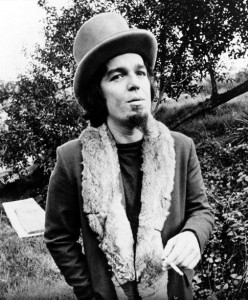Captain Beefheart dead at 69
Musician and visual artist Don Glen Vliet, better known as Captian Beefheart, passed away on Friday. He was 69.
Vliet, of Glendale, California, died at a hospital in Northern California as he had been suffering
from multiple sclerosis for several years. His condition had been deterioration lately.
As a musician, Vliet recorded 12 studio albums between 1965 and 1982 with a rotating ensemble of musicians called “The Magic Band.” Frank Zappa began collaborating with the band since 1964 and began performing with “The Magic Band” in 1965. Some experts credit Vliet with having strong influence in Frank Zappa’s musical development.
Vliet’s 1969 Trout Mask Replica ranked fifty-eighth in Rolling Stone magazine’s 2003 list of the 500 greatest albums of all time. He was the lead singer of his albums. But he was also in charge of most of the compositions as he played a number of instruments including harmonica, saxophone and other wind instruments.
Captain Beefheart, one of the most idiosyncratic and distinctive-sounding artists in rock history,
died Friday at an undisclosed hospital in Northern California from complications of multiple sclerosis. He was 69.
Beefheart, whose real name was Don Van Vliet, last performed in San Diego on February 16, 1978, at San Diego State University’s now-dormant Back Door. He quit making music in 1982 to focus on his painting, an endeavor that brought him considerable acclaim – and proved considerably more lucrative – than his music.
But his music proved enormously influential, in particular his 1969 double-album, ‘Trout Mask Replica,’ which was produced by fellow music maverick – and former San Diegan – Frank Zappa.
Beefheart and Zappa performed here together here in late 1975 at Golden Hall, followed by the joint album ‘Bongo Fury.’ The two met when both were attending high school in Lancaster in the Mojave desert, where Beefheart lived for many years with his wife.
The Captain, mostly remembered today as an icon from a certain time and place in American history, had command over an impressive four-and-a-half octave range. And while he had a vast working knowledge of a seemingly incongruous mix of genres – from acid jazz to modern classical – which he employed in his own blend of rock ‘n’ roll, truth be told, his unique fusion is best remembered as being, simply, true psychedelia.
Captain Beefheart will also forever remain loosely associated with Frank Zappa, whom he met as a teenager living with his family in the Mojave Desert. It was in that geographic location where he formed the Magic Band in 1964 – his backing group, which would undergo many transformations in the years that followed. With their commercially challenging, though blues-based, sound, Captain Beefheart & the Magic Band would have several ill-fated dealings with record labels and releases, several of which left Beefheart disillusioned and, temporarily, unwilling to continue making music.
He always returned, however, with an even more uncompromising vision.
In 1982, Beefheart retired from making music permanently, despite having attained near-mythical status among a certain demographic of music fan. His often underwhelming album sales in no way reflected the magnitude of his influence, however Beefheart spent most of the 1980′s focused on his artwork, which was his original talent and love as a child.
